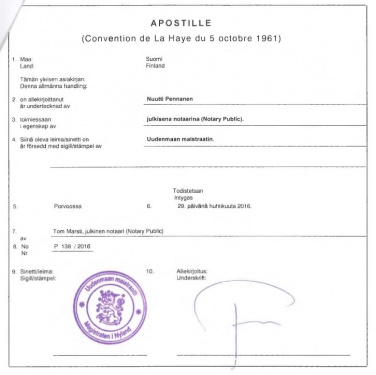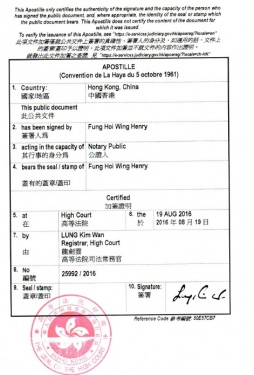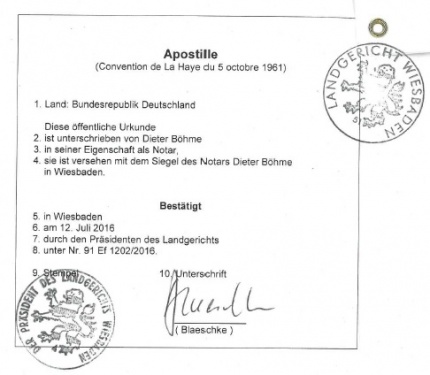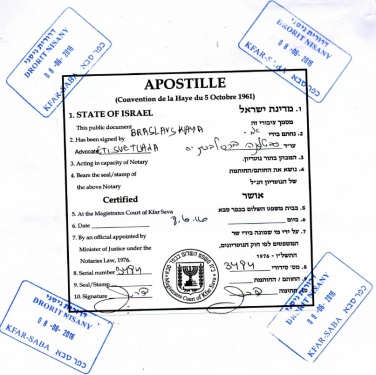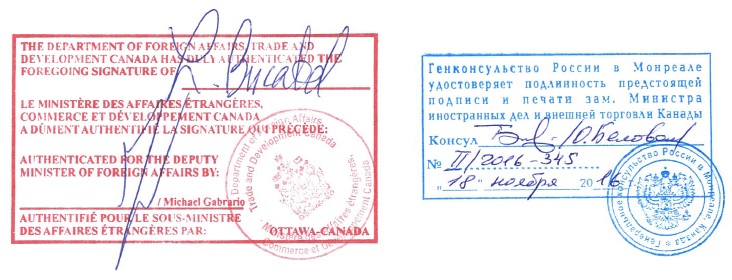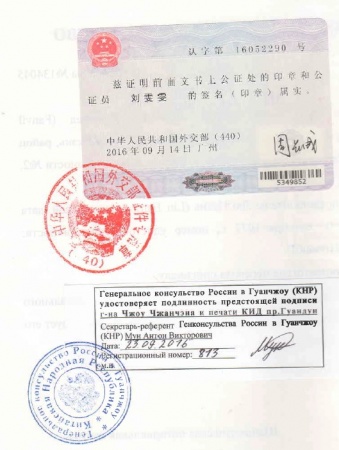Power of attorney for Notification
| Cryptographic means | |
|---|---|
 | |
| Principal legal acts | |
| IFCG services | |
| Obtaining permits for importation of cryptographic means:
Other related services: |
Modern complex electronic equipment may often have certain cryptographic functions even if it is not designed for any sort of data encryption or protection. As such almost all laptops, tablets, cell phones, routers, wireless mice, many radio sets, cryptocurrency miners, etc. support cryptography.
Importation (as well as exportation) of equipment with cryptographic functions to the EAEU territory is restricted. In most cases, a special document (notification) is required.
In Russia notifications are registered by Federal Security Service (FSS or FSB).
According to the law the notification is to be drawn up and submitted for registration by the manufacturer. Foreign manufactures have the following options:
- The manufacturer draws up and submits the notification for registration on their own
In this case notarization and legalization of the notification, as well as its certified (notarized) translation to Russian (if the notification is not drawn up in Russian) are required. Foreign companies usually face difficulties with filling up the notification, formal procedures of notarization and legalization, as well as with interacting with FSS. - The manufacturer may authorize a local (resident of EAEU) legal entity or a person to apply for notification
In this case the notification is issued and submitted for registration by the authorized applicant who only needs a legalized Power of attorney from the manufacturer and necessary information about the product required for filling up the notification. In practice, this option is usually the most convenient for foreign companies.
Specific aspects of compiling such Power of attorney for submitting to Russian FSS are discussed in detail below.
FSS pays significant attention to the correctness of the Power of attorney. Improperly drawn up or legalized Power of attorney is one the most common reasons of refusal to register the notification.
Contents
Grantor
The power of attorney to issue and submit notifications is granted by the manufacturer of the product to the legal entity or the person registered on the EAEU territory. Ideally if the manufacturer is represented by principal business office of the product’s trademark owner, but company division or subsidiary is also acceptable[1].
Contents
The power of attorney may be drawn up in English or any other official language of the manufacturer’s country or in both that language and Russian (the text of both parts should be exactly the same in that case).
The power of attorney should include the following information:
- Manufacturer’s name;
- Manufacturer’s head office address;
- Full name of a company representative that has capabilities to issue such power of attorney;
- Name of the Russian legal entity or a person that is authorized to represent manufacturer’s interests in FSS;
- For applicants represented by legal entities: legal address and tax ID;
- For applicants represented by persons: passport details.
All powers granted should be explicitly listed in the power of attorney, for example:
The manufacturer authorizes the Russian legal entity/the person “to represent manufacturer’s interests in State bodies of the Russian Federation, as well as to issue, submit, receive notifications, to affix stamps and to sign documents, as well as to provide technical documentation”.
Example of the Power of attorney
Notarization
The power of attorney is usually notarized on the territory of the state where the manufacturer’s head office is registered (although notarization can be made in any country, in Russia as well, provided that the manufacturer represantative can prove their identity, position and powers to the notary).
The notary certifies two facts:
- The signature of the manufacturer representative (the notary confirms that the legal entity or the person mentioned in the power of attorney and in its signature has indeed signed the document in his presence);
- The capabilities of the manufacturer representative (the notary confirms that the representative has capabilities (powers) to issue and sign such power of the attorney on behalf of the manufacturer).
Legalization
The notarized power of attorney should be legalized. The legalization procedure allows a document issued in one country to be certified for legal purposes in another (or any other) country.
There are two ways of legalization of a document: apostille or consular legalization.
Apostille
The apostille is an international standard form that specifies the modalities through which a document issued in one of the signatory countries can be certified for legal purposes in all the other signatory states.
The “apostille” stamp is put onto the original notarized documents only.
The apostille does not confirm that the document is accurate and complete, but it certifies the authenticity of the notary’s signature.
The document may be apostilled by various government institutions in different countries: by ministries, embassies, courts and so on.
The Apostille was established by the Hague Convention of 1961 as a special sign (stamp) that is put onto official documents drafted by a one country and submitted to another one, intended to supersede consular legalization. This form of legalization is accepted by official bodies of all the Apostille Convention signatory states.
The Apostille should include the following information:
- The name of the state the apostille was granted by;
- The name of the person that signed the apostilled document;
- The position of the person that signed the apostilled;
- The name of the institution which sealed/stamped the apostilled document;
- The name of the city where the document was apostilled;
- The date when the document was apostilled;
- The name of the body that apostilled the document;
- The number of the apostille;
- The seal/stamp of the institution that apostilled the document;
- The signature of the official that apostilled the document.
The apostille may be drawn up in one of official languages of the Convention (French or English), as well as in the national language of the country that put it onto the document. In practice, apostilles are often drawn up in two languages (in one of the official languages of the Convention and in the national one). The title “Apostille (Convention de la Haye du 5 octobre 1961)” should be written in French.
The apostille is put onto the document or onto a separate sheet that is affixed to the document.
Examples of apostilles issued in Hong Kong, Germany, Israel and Finland
Consular legalization
Consular legalization is a process of confirming the legality of the document issued by government bodies of a country in another country. This way of legalization is similar to the apostille, but is used for documents from the states that are not parties to the Hague Convention.
The main steps of the consular legalization of the document (for example, the notification and the power of attorney) in the country of the manufacturer:
- Notarization of the document.
- Certification of the notary’s signature at the Ministry of foreign affairs of the manufacturer’s state.
- Certification of the seal and the signature of the representative of the Ministry of foreign affairs at the Consulate General of the Russian Federation in the manufacturer’s state.
Legalization is generally more complex and time-consuming procedure than apostille.
Examples of the consular legalization in Canada and China
Translation
All documents drawn up in a foreign (not Russian) language should be notarially translated before being submitted to FSS (the official translation of the documents into Russian should be certified by Russian notary).
In particular, the following documents, stamps and inscriptions should be translated:
- The notification, if it is drawn up in a foreign language.
- The power of attorney, if it is drawn up in a foreign language (The power of attorney drawn up in both Russian and foreign languages does not need translation).
- The notarial certificate issued by the foreign notary, including the name, position, address and other notary’s data.
- The apostille stamp, including the information about the organization and/or the person it was issued by.
- The consular legalization.
Notes
- ↑ If the manufacturer stated in notification and power of attorney is represented by subsidiary then registered notification may later only be used to import goods produced by that subsidiary. In contrast, notifications from the head office of the trademark owner may be used to import goods of any division or subsidiary.
See also
- Cryptographic equipment restricted for import (export)
- Regulation on Notification
- Notification for importation of cryptographic devices
- Categories of cryptographic products
External links
IFCG Encyclopedia is an open knowledge base intended to help EAEU importers and experts in international trade.
Particularly, we can obtain FSS Notification for importation of goods with cryptographic abilities. We also provide other services related to importation of electronic goods: |
